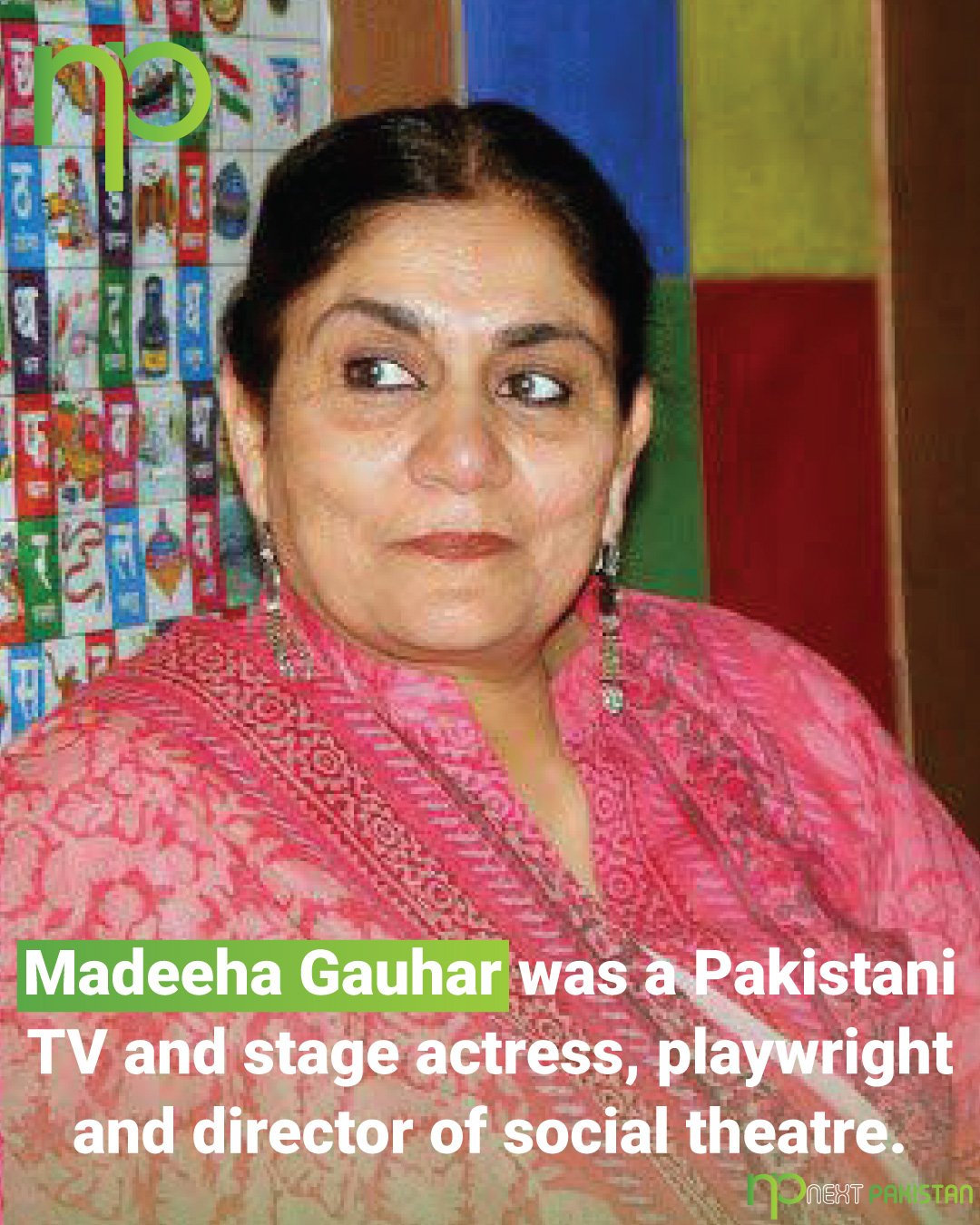
- February 19, 2024
- ubaidah khan
- 0
Madeeha Gauhar was a Pakistani TV and stage actress, playwright, and director of social theater, as well as a women’s rights activist. In 1984, she founded Ajoka Theatre, where social themes were staged in theaters, on the street, and in public places. With Ajoka Theater, she performed in Asia and Europe. She was one of the leading actresses on Pakistan’s television screens in the 1970s, 1980s, and 1990s.
Life and Activism of Madeeha Gauhar
Madeeha Gauhar was born in 1956 in Karachi, Pakistan. After completing her education, including a Master of Arts degree in English literature from Government College Lahore, she pursued further studies abroad. Gauhar moved to England, where she obtained another master’s degree, specializing in theater science at the University of London.
In 1983, having completed her studies, she returned to her native country and settled in Lahore. Gauhar quickly became involved in social and political activism. Notably, she participated in the Women’s March on 12 February, where she joined others in protesting against the regime. During the protest, she was photographed being pushed back by a police officer, symbolizing her unwavering commitment to advocating for social justice and reform in Pakistan.
The Legacy of Ajoka Theatre
Gauhar and her husband Shahid Nadeem founded Ajoka Theatre in 1984, creating a notable cultural institution in the city. Ajoka, meaning “current” in English, draws from the oral traditions of Bhand and Nautanki, finding resonance in the Punjab region. Despite Gauhar’s international education, Ajoka aimed to incorporate authentic Pakistani elements into its productions, reflecting contemporary sentiments.
With Ajoka, Gauhar performed not only in Pakistan but also toured extensively in countries like India, Bangladesh, Nepal, Sri Lanka, and various European nations, showcasing the richness of Pakistani culture on the global stage.
Advocacy through Theater
Madeeha Gauhar’s primary objective in directing theater productions was to promote a just, humane, secular, and equal society. Over the years, she directed nearly 36 plays, which were not only staged in Pakistan but also performed in various Asian countries.
Reflecting Contemporary Realities
Gauhar employed aesthetics and theatrical techniques to effectively portray the moral, social, and political landscape of contemporary Pakistan. Her productions served as a mirror to society, addressing pressing issues and challenging societal norms.
Championing Women's Rights
As a feminist, Gauhar frequently explored the theme of women’s rights in her works, particularly in a society where male dominance is prevalent. Through her plays, she aimed to shed light on the struggles faced by women and advocate for their empowerment and equality.
International Recognition
In recognition of her contributions to theater and social activism, Gauhar received several prestigious awards. In 2006, she was honored with the Prince Claus Award from the Netherlands, and in 2007, she won the International Theatre Pasta Award. These accolades underscored her impact not only within Pakistan but also on the global stage, reaffirming her commitment to using theater as a tool for social change and empowerment.
Controversy Surrounding "Burqavaganza"
In 2007, Ajoka Theatre performed “Burqavaganza,” a play written and directed by Madeeha Gauhar, which sparked significant controversy. The production featured actors dressed in burkas, portraying themes of sexual discrimination, intolerance, and fanaticism.
Western Perception
From a Western perspective, “Burqavaganza” was viewed as a critique of societal hypocrisy, particularly addressing corruption. The play was seen as an innocent portrayal of the societal issues faced by Pakistan.
Reaction in Pakistan
However, within Pakistan, the play faced fierce opposition. Members of Parliament called for a ban on the performance, and the Minister of Culture threatened sanctions if the play continued. Eventually, the ban was imposed, curtailing the production’s staging within the country.
International Support
Despite the ban, “Burqavaganza” received support from non-governmental organizations and women’s rights activists. The play was translated into English, and staged performances were organized internationally as a gesture of solidarity with Ajoka Theatre and its advocacy for social justice and women’s rights.